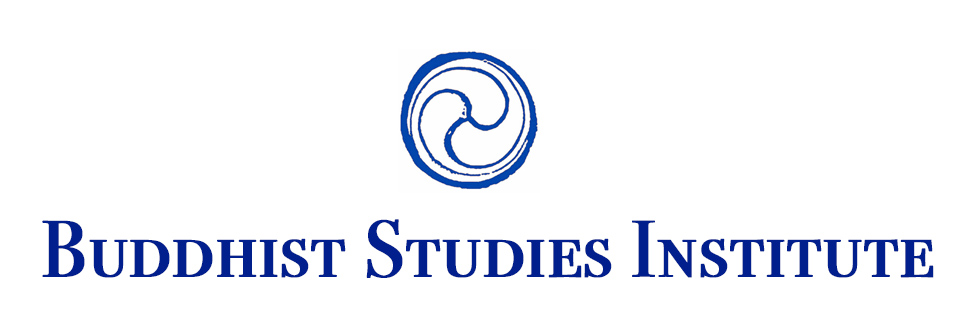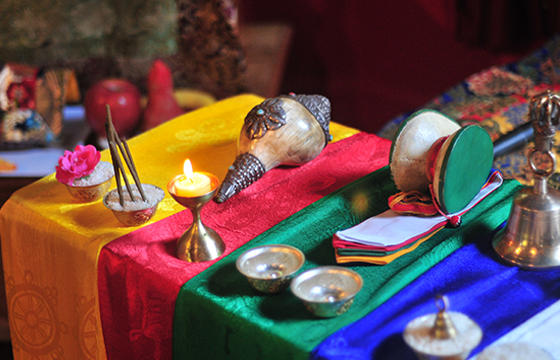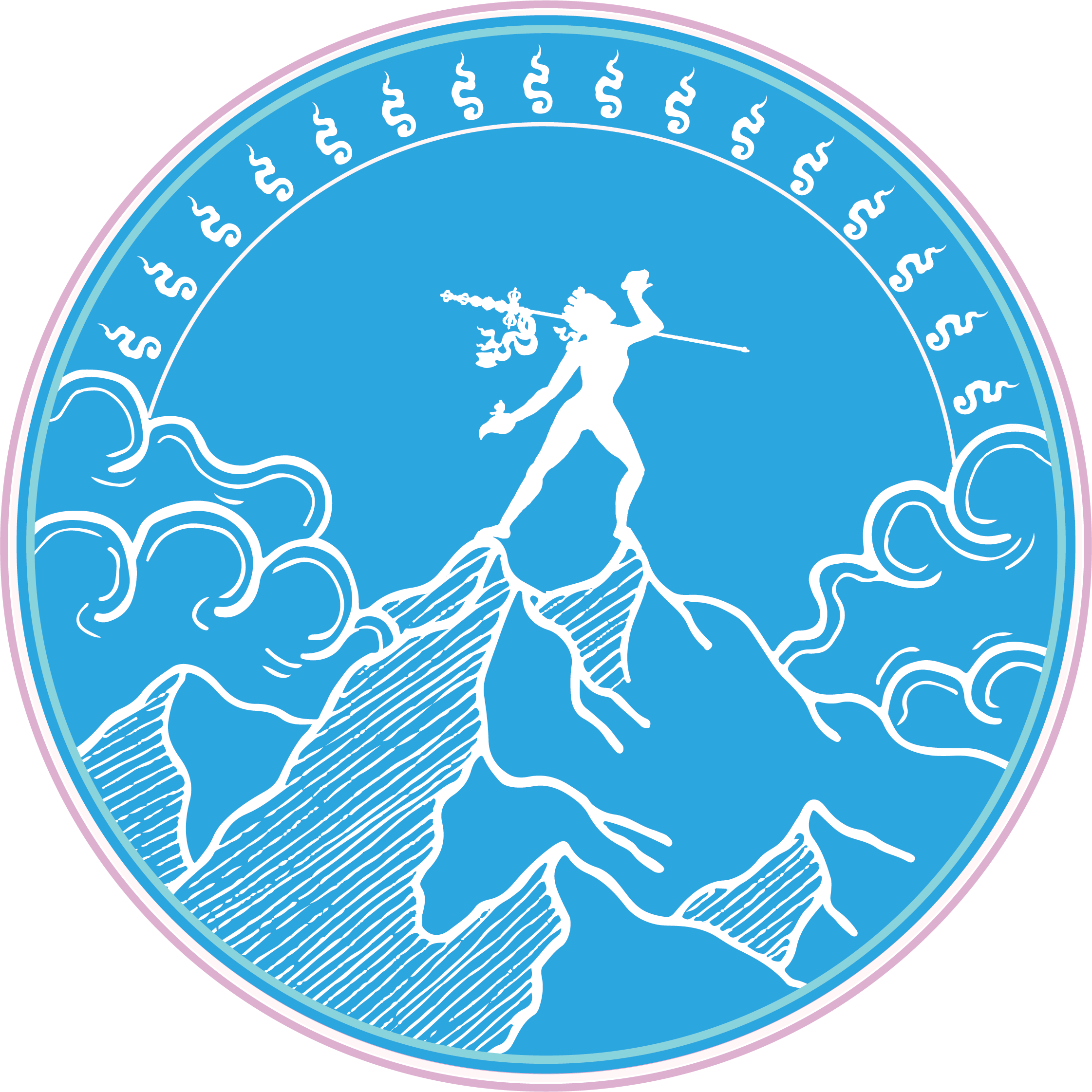Vajrayana Training Welcome Letter & Guidelines
Emerging From the Cocoon
Vajrayana Training is designed to support students who are no longer just exploring the Buddhist path in a preliminary way, but instead consider themselves Buddhist and are seeking to know the teachings and live them out in their everyday lives. This interest arises out of a tangible sense of the effect the teachings have had on their life and they are motivated to continue in that direction. In that sense of daring to grow, we become willing to step beyond our comfort zone. We can no longer remain asleep. Our passion for life beyond self-deception compels us. We are enthusiastic to explore the joys of going beyond Self-protection, Self-righteousness and fixed identities, even if it is uncomfortable at times. We desire to explore life outside of compulsive habits and conditioning. We are willing to unravel our narcissism, and in doing so, discover further what it means to care for ourselves, others, and our world.
At the level of Vajrayana Training, our life becomes enlivened by discipline as we spend our time in practices, caring for personal needs, the environment, and service to the community. If a Vajrayana Training participant is inspired, Service can become an important avenue of training from this level of membership onward, because it provides live opportunities to explore the lived meaning of the teachings with other practitioners, and with the support of our sangha and the teacher. We are put on the spot again and again with how our mind is and we use these opportunities to step out of the cocoon into the sane world of awareness and kindness.
Vajrayana Training is appropriate for people who:
- have experienced the potency of the Buddhist teachings in their lives and take “refuge,” meaning that they consider themselves Buddhist
- are eager to step outside their comfort zone and go beyond self-deception
- are enthusiastic to explore relating to others and the world beyond self-protection and self-righteousness
- are enthusiastic to step outside fixed identities and experiment with new ways of being
- are enthusiastic to support others as they explore the teachings, work through patterns of conditioning, and experiment with new ways of being
- feel the importance of discipline and training
- have a connection with Pema Khandro Rinpoche and are interested in exploring and deepening that connection
- have a connection with the Ngakpa International community and are interested in deepening that connection
- take responsibility for their own lives, their own growth, their experiences, and/or are willing to learn to take that responsibility
- see themselves as responsible for the quality of relationships they are having in the School
- are inspired to hold a space for others to receive the teachings and training
- are willing to be kind and learn to be increasingly more kind
- are willing to work with their mind and emotions in ways that are not necessarily comfortable, in order to grow and see one’s Self and the world more clearly
- are inspired by the opportunity to serve the community and help to sustain the School through service and generosity
Vajrayana Training Participation Does Not Require:
- commitment to Pema Khandro Rinpoche as one’s root teacher. The root-teacher relationship and relationship with Rinpoche may be explored during Vajrayana Training, but it is still in the exploratory stages and no commitment has been made.
Leaving the Vajrayana Training Program
Students may find that upon deeper exploration of the school, that there is not a “fit.” At that point one may step down one’s participation to Supporter Membership, Friend, or leave the school to go in another direction altogether. There is no stigma associated with leaving the school and former members are always welcome to join as a member again, or to return at anytime to participate as a guest. Every spiritual journey is unique and it is imperative to be authentic to that process.
Training Created for Students at the Vajrayana Training Level
- Vajrayana Training 1, 2 & 3
- Sangha Teaching Assistant
- Service
Tentative Curriculum*
Vajrayana Training – Course of study:
Four Thoughts, The Three Turnings, Nyingma Lineage, Vajra Guru Mantra, Vajra, Bell & Drum, Making a Shrine, Bodhichitta, Bodhisattva Vow, Tantric Refuge, Samaya, Ngondro 1, Ngondro 2, Ngondro 3, Ngondro 4. Emptiness; Self, No-Self and Identity in Buddhism; The Goal of the Path; Intrinsic Purity: Tantra, Conduct & the 5 Precepts; Savoring the Flavor of Experience: Tantra, Conduct & the 5 Precepts; The Inevitability of Death and the Vow to Help Beings: Tantra, Conduct & the 5 Precepts; 2 Truths & the Lie of Duality: Tantra, Conduct & the 5 Precepts; Ethics in an Ambiguous World: Tantra, Conduct & the 5 Precepts; Ngondro 1; Ngondro 2; Ngondro 3; Ngondro 4.
* In the Tantric tradition, the teachings are always given according to the specific needs of the students. This curriculum is subject to change at any time according to the guidance of Pema Khandro Rinpoche and her vision of what is most appropriate for the specific students involved.
Resources
The Vajrayana Training Program is supervised by Janak Kimmel, a senior student of Pema Khandro Rinpoche. If you ever have questions, concerns, or a grievance about the program, he is available as a resource and support. His contact info is: Janak.Buddhist.Yogis@gmail.com.
Membership & Registration of Vajrayana Training is overseen by Tsal’gyur Dorje. She is available to answer your questions about your membership, monthly dues, and the workings of the School. Her email is Tsalgyur.Buddhist.Yogis@gmail.com.
Private Meetings with Pema Khandro Rinpoche
Semi-private meetings with Rinpoche are available for Vajrayana Training Participants during the one-day retreats. These meetings are an opportunity to ask questions about the teachings, practices, and how they apply to your personal life. Such questions may also be asked in front of the group during retreats, though more private, extensive, or detailed questions could be reserved for these meetings.
These meetings will usually occur during lunch or dinner of the day-long retreats. The meetings are intentionally short and to the point, approximately five minutes. If Rinpoche sees a longer meeting as necessary, she will arrange for it or extend the time. The meetings are optional and there is no need to bring a question; one may simply sign up and use the time to say hello. If you do have a question, it should be written down and handed to Rinpoche. This helps to focus the time together and cover the issues that are most important to you.
To arrange a meeting, sign up with Rinpoche’s secretary or attendant. An announcement about meetings with Rinpoche will be made during the retreat.
Ethical Considerations
Sexuality
Sexuality is sacred and personal. There are many stories of sexual confusion and misunderstanding in spiritual schools, and we are committed to avoiding this as a community. Students of the school will never be asked to engage sexually with any of the teachers in the school, and every effort is made to protect students from inappropriate sexual advances from teachers and guest teachers.
Students of all sexual orientations are welcome in the school. Every student, no matter their sexual orientation, must deal with the relationship between male and female, and the male and female aspects of our inner lives (form and emptiness). Since every human being contains both masculine and feminine, form and emptiness qualities, the red and white essence practices (teachings on enlightened romance) apply to every student regardless of their orientation.
Humor
Students are encouraged to enjoy a relaxed, playful demeanor during the celebratory periods of our gatherings with a few caveats. Humor that is sexist, racist, anti-LGBTQ, degrading to men or degrading to women, degrading or insulting to others (even if it is in a joking way), degrading to marriage and relationship (ie; jokes about the old ball and chain, or sex-less-ness being equated to marriage) is not congruent with the intentions of our community.
Monogamy
Monogamous relationships are treasured in our tradition and in our school as a form of practice: a method to realize non-duality. Monogamous romantic relationships also provide the means through which our school can offer great value to our society as we heal the basic divide between women and men in intimate personal engagement. We actively encourage fidelity and seriously discourage infidelity. We ask that students in the school support the monogamous commitments in the community by refraining from inappropriate sexual advances to those in committed relationships.
Smoking
Practitioner Membership precedes Vajra Sangha. At the level of Vajra Sangha, no members are admitted who take illegal drugs or smoke cigarettes. This is because the Inner Yogas that are practiced at that level make drug use and smoking even more dangerous, as they open up deeper channels of energy. Vajrayana Training Participants are expected to be committed to quitting smoking and the use of drugs, and to refrain from both during retreats and teachings. For more details on the dangers of mixing smoking with serious practice, please see: http://www.dudjom-on-smoking.org/.
Diet
Differences in diet exist at all levels of the school. While Pema Khandro Rinpoche is a vegan-vegetarian, her teachers are not. One’s dietary considerations are addressed in the school through various teachings in the curriculum, as they affect mind, emotions, body, energy level, meditation capacity, the environment, and the practice of the yogas. Students of the school are encouraged to be vegetarian for reasons specific to the yogas practiced in the school. Vegetarian diet is also one avenue of expressing compassion and concern for the treatment of livestock animals in the U.S. Most of the students closer to Rinpoche are vegetarian. However, those who are empowered and confident in the specific practices to liberate animals and assuage their suffering while still eating a meat-based diet are supported to do so. At the Vajrayana Training level, this decision is made personally according to one’s own capacity and inspiration.
In the wisdom of the Tantric tradition, all students at the level of Vajra Sangha, take in a small amount of meat and alcohol during the Tsog-Khorlo, the Tantric feast practice. During this ritual, we make a karmic connection with the animal whose flesh is eaten during the practice, bringing them into the benefit and power of the Dharma through the rite. We go beyond concept and preconception and discover “one taste” by consuming whatever the Lama offers us.
Finances
The school is sustained by the generosity and contributions of those who participate in it. Tuition only covers 50% of the school’s expenses; the rest of the school’s expenses are covered by small and large donations. Paying membership fees is a practical way to support the school’s functioning. Financial Aid is always available to those who need it. However, Financial Aid is only possible because everyone who has the capacity to contribute does. Some level of financial health and practical functionality in the world is an imperative aspect of being a Vajrayana Training participant and member of the School. If one cannot function in ordinary life at an ordinary level, then it will be impossible to transform ordinary life to an even higher level of sanity and satisfaction, as is possible through this path.
Tuition for Vajrayana Training Program
Tuition for Vajrayana Training begins at $150 at the Snow Lion Member Level.
The Sustainer Member Level (All Access Pass) for $250 per month also includes Vajrayana Training.
Personal Teaching Assistants
Each Vajrayana Training participant will be assigned a Teaching Assistant: a senior sangha member participating in Service. The Teaching Assistant is intended to be available as support for staying engaged with the community, the curriculum, and the practices. The Teaching Assistant will be someone from whom the Vajrayana Training participant can receive advice and clarification on practice, basic instructions and helpful information about being in the school.
Each Vajrayana Training participant will formally meet (via phone or in person) with their Teaching Assistant once per month for 30 minutes. Vajrayana Training participants are responsible for scheduling the monthly meetings with their Teaching Assistant in accordance with the availability of the Teaching Assistant. Should questions or the need for additional support arise outside of the set meeting times, Vajrayana Training participants may contact their Teaching Assistant to schedule additional meeting times according to the Teaching Assistant’s availability with advanced notice. Teaching Assistants may be available to answer questions via email. While the Teaching Assistants are available for support and to answer questions, they are not someone to turn to in lieu of practice. Every level of the school emphasizes taking personal responsibility for oneself as well as learning to care for others.
May you benefit greatly from the teachings of Pema Khandro Rinpoche,
Your friends at Ngakpa International


